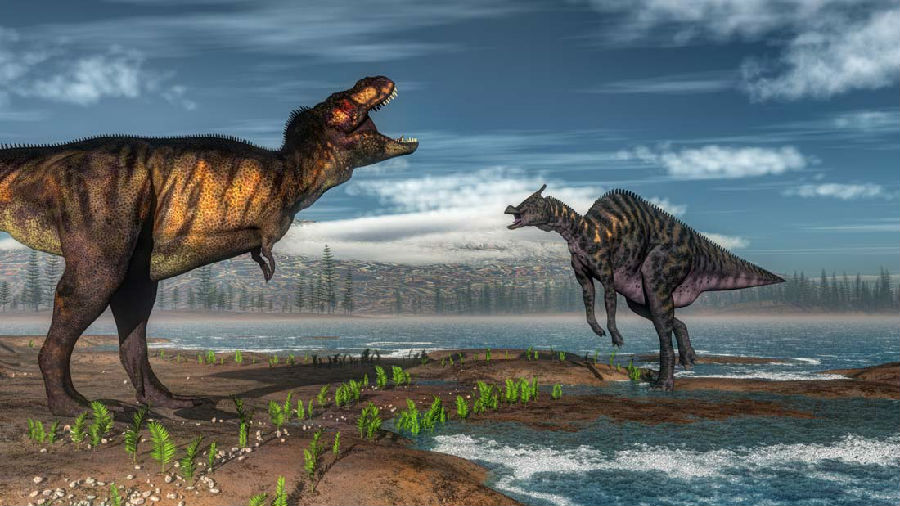Bubbling to the surface is one of nature's most toxic gases -- Hydrogen Sulfide.
从地面冒出的泡泡是大自然最毒的气体——硫化氢。
Released from deep underground by Volcanic activity, it collects invisibly in low lying areas
透过火山活动从地底深处释放出来,硫化氢在低洼地区悄悄聚集。
like the waterhole's natural basin.
比如,水坑所处的天然盆地。
the gas paralyzes the lungs, making escape impossible, then it kills by suffocation.
气体会麻痹肺部,想逃都逃不了,然后就会窒息而死。

What was once a refuge...is transformed into a death trap.
曾经是避难的洞穴,如今成了死亡陷阱。
The last dunosaurs in this part of Mongolia is dead.
蒙古这一带最后一只恐龙死了。
Mexico, too is a graveyard.
墨西哥也成了坟场。
Just 500 miles from ground zero, it's been hit by wave after wave of devastation,
距离撞击点500英里这里遭到一波又一波的蹂躏。
There would seem to be little that nature could throw at it.
似乎没留下什么可以再让大自然虐待。
And yet,amidst all this destruction, beneath the thin layer of charged soil, a lone Alamosaurus egg survives.
不过在种种毁灭之中,在一层薄薄的焦土之下有个阿拉摩龙蛋幸存下来。
In the Pacific Northwest, just a handful of dinosaurs patrol the gray wasteland.
在西太平洋岸,只有少数恐龙还在灰色荒地上走动,
An Ankylosaurus, severely weakened by hunger, searches the charred terrain for something to eat.
一只饿到严重虚脱的背甲龙,在焦土里寻找可以吃的东西。
25 feet long and weighing 4 tons, this heavily armored herbivore is used to getting nearly 300 pounds of food every day.
25英尺长,4吨重,这只全身装甲的草食动物,习惯每日吃下近300磅重的食物。
All it can find now is a small bush.
现在它能找到的一小片灌木。
And even that won't come without a fight.
而且连这个都有人来抢。












